Politics
FM Fidan calls for win-win basis for Cyprus question
Foreign Minister Hakan Fidan on Wednesday called for a win-win approach to solving the decades-long Cyprus issue as he participated in the “Expanded Format Informal Meeting on Cyprus” in New York.
Fidan participated in the talks alongside Greek and British foreign ministers, as well as leaders from both the Turkish and Greek Cypriot sides.
Türkiye’s top diplomat emphasized the need for a realistic and fair solution on the island, based on existing facts, that benefits both communities and contributes to regional and international stability.
“Our approach is constructive,” he said. “President Erdoğan’s vision is clear – we operate on a win-win basis, always with empathy for the other side. But we cannot accept any formula that ignores the rights of Turkish Cypriots.”
Fidan criticized the longstanding status quo on the island for disregarding Turkish rights and added that even the United Nations acknowledges many of Türkiye’s positions.
“We are not a country that avoids negotiations or rational dialogue,” Fidan said. “We will continue engaging in talks, and we hope today’s discussions lead to mutually beneficial solutions. We have ideas and scenarios on the table, and we’ll be reviewing decisions from previous meetings and exploring what new agreements may be possible.”
Fidan also participated in a similar informal meeting on Cyprus, held in Geneva this March.
These informal meetings do not represent a continuation of previous negotiation processes, nor the start of a new negotiation process.
At the Geneva meeting, held at Guterres’ request, the sides focused on cooperation areas such as crossing points, demining and environmental issues, with progress achieved on some but stalled on others due to the stance of the Greek Cypriot side.
To advance the process, Maria Angela Holguin Cuellar, the U.N. secretary-general’s personal envoy on Cyprus, was reappointed in May and has since engaged in multiple visits and consultations with leaders and officials on the island and in Türkiye, Greece, the U.K. and the EU.
Cyprus has been mired in a decades-long dispute between Greek Cypriots and Turkish Cypriots despite a series of diplomatic efforts by the U.N. to achieve a comprehensive settlement.
Ethnic attacks starting in the early 1960s forced Turkish Cypriots to withdraw into enclaves for their safety.
In 1974, a Greek Cypriot coup aimed at Greece’s annexation of the island led to Türkiye’s military intervention as a guarantor power to protect Turkish Cypriots from persecution and violence. As a result, the Turkish Republic of Northern Cyprus (TRNC) was founded in 1983.
It has seen an on-and-off peace process in recent years, including a failed 2017 initiative in Switzerland under the auspices of guarantor countries Türkiye, Greece and the U.K.
The Greek Cypriot administration entered the EU in 2004, the same year that Greek Cypriots single-handedly blocked a U.N. plan to end the longstanding dispute.
Politics
Türkiye detains 15 more linked to corruption at Istanbul municipality
Türkiye has detained 15 more suspects linked to alleged corruption at Istanbul Metropolitan Municipality (IBB), authorities said Friday.
The detentions are part of an ongoing investigation by the Chief Public Prosecutor’s Office in Istanbul into alleged bribery, tender rigging and fraud at the IBB, run by the main opposition Republican People’s Party (CHP).
Authorities issued search warrants for 18 people in total in connection with the investigation.
The suspects, charged with bribery and tender rigging, include deputy managers, representatives and purchasing personnel of several construction companies
Police said the search continues for the other three suspects.
Dozens of suspects, including Istanbul’s former mayor, Ekrem Imamoğlu, have been arrested on charges of “leading a criminal organization,” “membership in a criminal organization,” “extortion,” “bribery,” “aggravated fraud,” “unlawful acquisition of personal data” and “tender rigging” since March.
A barrage of investigations focusing on CHP-run municipalities across Türkiye netted mayors and municipal bureaucrats accused of taking bribes in exchange for building permits, rigging tenders and other forms of corruption involving municipal businesses.
The CHP, which runs Istanbul and more than half of its districts, claims the charges are politically motivated, while authorities highlight that the judiciary is independent of any political influence and point out that some investigations were launched upon complaints by CHP members themselves against mayors and municipal officials.
Although several mayors before him were detained or arrested in corruption probes, the arrest of Imamoğlu in March for alleged corruption triggered protests by the CHP.
CHP Chair Özgür Özel led the protests that occasionally descended into all-out riots. Recently, Özel openly threatened an uprising against the democratically elected government if the corruption investigations continue, prompting outcry from CHP critics who accused him of attempting to instigate a coup.
Imamoğlu, who is declared a future presidential candidate by the CHP after his arrest, faces a spate of accusations alongside corruption charges, including forging his university diploma, and insulting and threatening prosecutors who investigated him.
The former mayor was sentenced to 20 months in prison last week for threatening Istanbul’s Chief Public Prosecutor Akin Gürlek, barely dodging a political ban.
Özel is similarly under investigation for making threats against public and judicial officials due to their duties.
Politics
Türkiye to continue fostering cooperation between Cypriot sides
Ankara will continue efforts to develop a “culture of cooperation” between the two sides on the island of Cyprus in good faith and in close consultation with the Turkish Cypriot side in the coming period, the Foreign Ministry said Friday.
Ministry spokesperson Öncü Keçeli said that the developments since the Geneva meeting in March were evaluated at the informal Cyprus meeting in New York.
Keçeli noted that the desired level of progress has been achieved in establishing the Youth Technical Committee, restoring cemeteries, and addressing environmental and climate change issues.
He also said that the parties are very close to reaching an agreement that will allow work to begin on the island’s mine clearance issue, with only some technical details remaining to be finalized.
Keçeli added that despite all the efforts of the U.N. and the constructive efforts of the Turkish side, progress has not yet been achieved on the remaining two of the six topics identified in March: the opening of four new border gates and solar power electricity generation in the buffer zone.
“While the Turkish side, in good faith, accepted the U.N.’s proposed compromise regarding the border gates, the Greek Cypriot side’s insistence on new conditions at every stage, its failure to keep its promises, and its persistent rehashing of proposals it has repeated for years and which have not been accepted have made it impossible to reach a conclusion,” he said, indicating that the Greek Cypriot side’s also hindered progress on solar power electricity generation in the buffer zone.
Politics
FETÖ-linked businessman bequeaths fortune to terror group in will
Zeki Doruk, the owner of major Turkish retail chains HAKMAR and TATBAK, left his entire fortune to the Gülenist Terror Group (FETÖ), according to a handwritten will discovered in his home during a joint anti-terror operation, authorities said Wednesday.
Doruk was among several suspects detained in a coordinated operation carried out on July 15 across nine provinces by Türkiye’s National Intelligence Organization (MIT), the Istanbul Chief Public Prosecutor’s Office and the Istanbul Financial Crimes Department, targeting FETÖ’s current financial network.
During a search of his residence, law enforcement discovered a locked safe containing large quantities of gold and jewelry, as well as a personal will and a religious invocation. The will, written in Doruk’s own handwriting, stated that he was bequeathing all his assets — including HAKMAR and TATBAK — to FETÖ, and instructed that the zakat (charitable giving) from his businesses be directed to the group under the guise of “the Hizmet movement.”
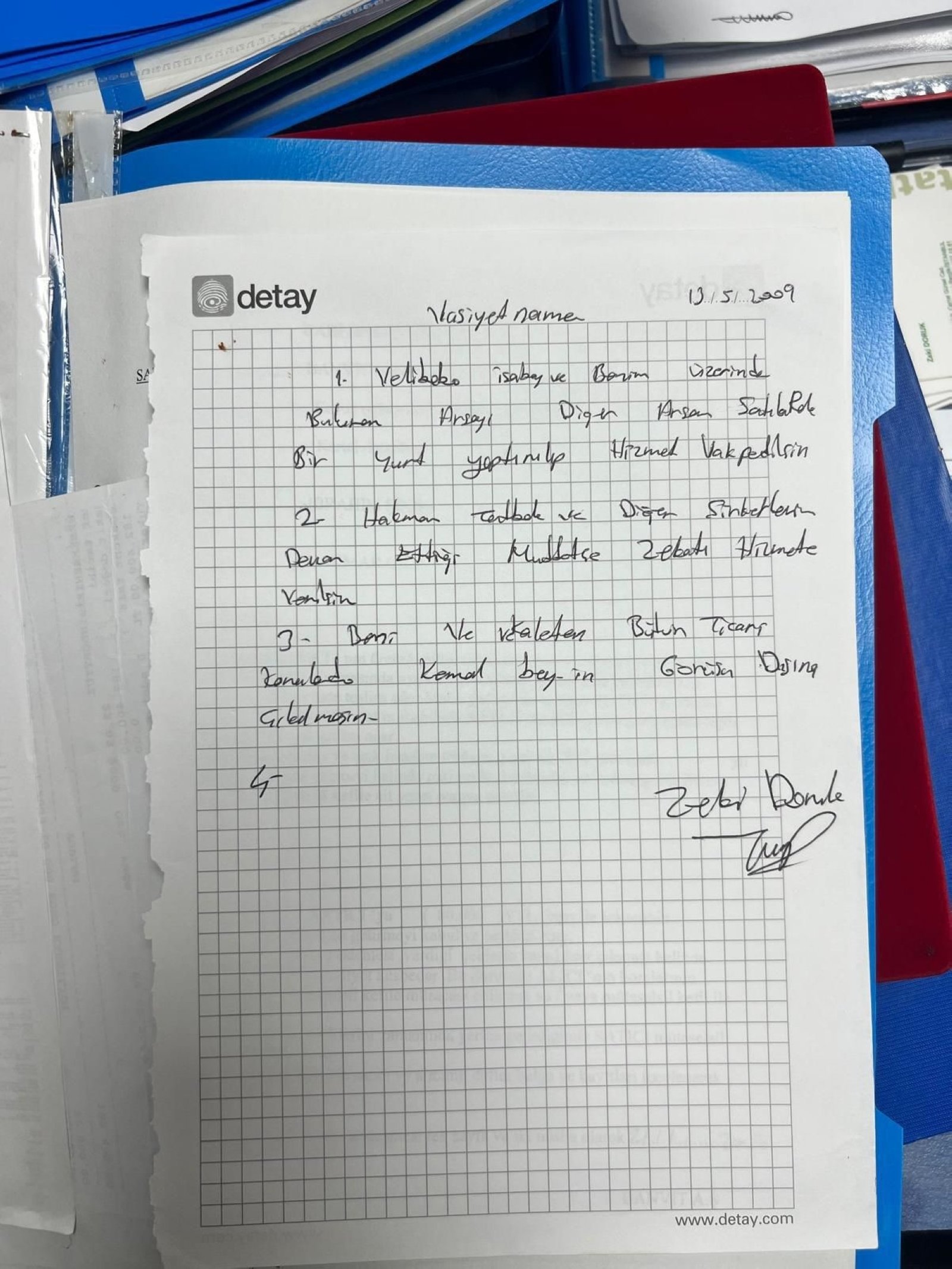
Authorities also found a so-called “talisman prayer,” believed to have been written by FETÖ’s deceased ringleader Fetullah Gülen himself and distributed to select members of the group’s secretive inner circle. Doruk had reportedly kept the prayer along with his will in the safe, telling associates, “It was Gülen who elevated me, my fortune is his.”
When first detained, Doruk deliberately gave the wrong combination to HAKMAR’s corporate safe to prevent access, officials said.
A court-appointed trustee (kayyum) has now been assigned to manage the affairs of both HAKMAR and TATBAK, as well as an additional 19 companies owned by Doruk that were found to have funneled finances to FETÖ’s domestic and international networks.
Authorities say the businessman was regularly transferring funds to FETÖ operatives in Türkiye under the instructions of the group’s overseas leadership.
Doruk’s 22 companies now under trustee control include firms operating in agriculture, education, food, retail, and construction.
Politics
At UN-led Cyprus talks, TRNC insists only 2-state solution viable
A federation-based solution for the island of Cyprus is off the table, Ersin Tatar, president of the Turkish Republic of Northern Cyprus (TRNC), reiterated on Thursday following talks at U.N. headquarters.
“We will never compromise our sovereignty. If there is to be an agreement, it will be based on the equal sovereignty of two separate states,” Tatar told reporters in New York.
The informal meeting on Cyprus was held under the auspices of the U.N. Secretary-General Antonio Guterres, who described the talks as “constructive” and said the leaders of the ethnically divided island had agreed to continue discussions aimed at building confidence.
The talks followed a similar meeting hosted in Geneva in March and aimed at facilitating an exchange of views on developments in six key cooperation areas previously agreed upon by the Turkish Cypriot and Greek Cypriot sides.
Greek Cypriots control the southern part of the island and are recognized by the international community as a state, despite protests from Turkish Cypriots and Türkiye.
The TRNC, located in the northern part of the island, is recognized by Türkiye, which is a guarantor state in the resolution of the decades-long “Cyprus question.”
Türkiye’s Foreign Minister Hakan Fidan, Greek Cypriot leader Nikos Christodoulides, the foreign minister of Greece, George Gerapettis and the U.K. Minister of State for Europe, North America and Overseas Territories, Stephen Doughty, also attended the meeting.
Greece and the U.K. are other guarantor states in the process.
Tatar stressed Thursday that formal negotiations on the Cyprus issue will not resume unless the sovereign equality and international status of Turkish Cypriots are recognized.
“We obviously, in the last four years, have consolidated our new policy that unless our sovereign equality and equal international status is reaffirmed, we will not resume formal negotiations for the resolution of the Cyprus problem,” he noted.
“Because we believe very much that these assets, our sovereign equality and international status, they are our inherent rights.”
The talks in Geneva focused on exploring areas of cooperation between the two sides on the island, rather than reaching a final resolution on the status of the communities.
Eventually, the sides agreed upon the opening of new crossing points in the divided island where Greek Cypriots and Turkish Cypriots are separated by a U.N. buffer zone, clearance of land mines, cooperation on environment and climate change, solar-powered electricity production in the buffer zone, restoration of cemeteries and the establishment of a joint technical committee for the youth.
Although progress was reported in some topics discussed in Geneva, cooperation stalled in others, such as the clearance of mines and electricity production, due to the uncompromising stance of the Greek Cypriot side.
On Thursday, Guterres said Greek and Turkish Cypriot communities would press ahead with attempts to open new crossing points between the two sides and cooperating on solar energy initiatives.
“It is critical to implement all these initiatives as soon as possible, for the benefit of all Cypriots,” Guterres said.
There are presently nine crossing points along a 180-km-long (116-mile-long) cease-fire line splitting the two sides. Guterres said there was a “question of itinerary” in relation to one of the new checkpoints opening but that there had been important progress on the issue.
Following the meeting, Tatar said that the Greek Cypriot side had sought to have a new road built in the buffer zone to reach a new crossing – something unacceptable to the Turkish Cypriot side.
“Because of this buffer zone complication, we have not been able to announce the opening of four gates,” he said. “I’m very upset about this.”
Tatar said that he had offered a counterproposal to the Greek Cypriot leader that was not accepted.
“We are not losing ground,” he insisted, saying he was hopeful there would be movement on the issue by the time of the U.N. General Assembly high-level meetings in September.
Tatar noted that he came to the meeting “with a positive, constructive and forward-looking agenda” but expressed “profound disappointment” over incidents on the island following the meeting in Geneva.
“The actions of the Greek Cypriot leadership are causing Turkish Cypriot people to be anxious under pressure and increasingly threatened,” he said.
Saying that “many Turkish Cypriots are in fear over being arrested or detained in the event they cross to South Cyprus or when traveling abroad,” Tatar reaffirmed that “there are two states and two democracies, which reflect the will of the Turkish Cypriot people and the Greek Cypriot people, which have been in existence in Cyprus for the last six years.”
“If there is to be a new and formal negotiation process, it must be based on the realities on the ground, treating the two sides equally, fairly and with dignity,” he added.
Politics
Erdoğan, al-Sharaa discuss Israeli aggression in phone call
President Recep Tayyip Erdoğan held a phone call with Syrian President Ahmad al-Sharaa on Thursday to discuss recent developments in Syria following Israeli airstrikes, the Presidential Communications Directorate said in a statement.
During the call, President Erdoğan condemned Israel’s attacks on Syrian territory, saying they are unacceptable and pose a serious threat to regional stability.
He emphasized that Türkiye will continue to support the Syrian people, as it has consistently done in the past.
Erdoğan also welcomed the recently established cease-fire between Druze communities in southern Syria, expressing Türkiye’s satisfaction with efforts to de-escalate tensions.
For his part, Syrian President al-Sharaa thanked Erdoğan for Türkiye’s ongoing support for Syria’s political unity, territorial integrity, and sovereignty.
The two leaders also exchanged views on regional cooperation and the importance of maintaining peace and security across Syria.
Ankara played a critical role in facilitating the cease-fire following Israeli strikes that threatened to endanger peace not only in Syria but the whole region, sources said Thursday.
In the process, Türkiye has undertaken significant efforts and diplomacy, engaging with several countries as well as Syrian officials.
National Intelligence Organization (MIT) chief Ibrahim Kalın discussed the situation with interlocutors in the U.S., Syria and Israel, security sources said. He was also in close contact with the U.S. Special Representative for Syria Thomas Barrack. The leader of the Druze community was another figure with whom Kalın has negotiated to achieve the cease-fire.
Politics
Türkiye, Arab nations unite in support of Syria’s sovereignty
Türkiye and 10 Arab countries on Thursday reiterated their commitment to Syria’s sovereignty, unity, stability and security, denouncing foreign interference and condemning ongoing Israeli strikes, according to a joint statement released by Saudi Arabia’s Foreign Ministry.
The statement was issued by the foreign ministers of Türkiye, Jordan, the UAE, Bahrain, Saudi Arabia, Iraq, Oman, Qatar, Kuwait, Lebanon and Egypt.
The ministers stressed support for Syria’s security, unity, stability and sovereignty and rejection of all foreign interference in its affairs.
They also welcomed a recent cease-fire agreement in the southern province of Suwayda and called for its full implementation.
The joint statement described the cease-fire deal as essential to preserving Syria’s unity, protecting civilians, and upholding the rule of law and state sovereignty.
It welcomed Syrian President Ahmad al-Sharaa’s commitment to holding accountable all individuals responsible for abuses against residents in Suwayda.
The 11 countries also voiced support for all efforts aimed at restoring security and state authority across Suwayda and the entire country, while rejecting violence, sectarianism, incitement, and hate speech.
The ministers strongly condemned repeated Israeli airstrikes on Syrian territory as blatant violations of international law and Syria’s sovereignty.
They warned that the attacks undermine Syria’s security, stability, territorial integrity, and the safety of its citizens, while obstructing the Syrian government’s efforts to build a stable future that meets the aspirations of the Syrian people.
The countries emphasized that Syria’s stability is essential to broader regional security and should remain a shared priority.
They also called on the international community to support Syria’s reconstruction process and urged the U.N. Security Council to uphold its legal and moral responsibilities by ensuring Israel’s complete withdrawal from occupied Syrian territories, halting all hostilities and interference in Syria, and enforcing U.N. Resolution 2766 as well as the 1974 Disengagement Agreement.
The statement comes a day after Israeli forces launched air raids on more than 160 targets across four Syrian provinces – Suwayda, Daraa, Damascus, and Damascus countryside – killing three people and injuring 34 in the capital alone.
Israel has cited “protection of Druze communities” as a pretext for its attacks in Syria, especially in the country’s south.
However, most Druze leaders in Syria have publicly rejected any foreign interference and reaffirmed their commitment to a unified Syrian state.
Following the fall of Assad in December 2024, Israel intensified its air campaign in Syria and declared the buffer zone between the two countries defunct alongside the 1974 Disengagement Agreement.
-
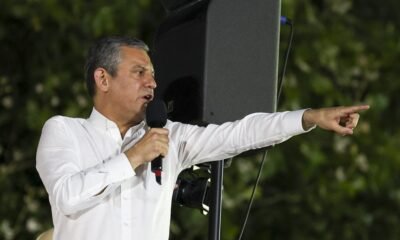
 Politics21 hours ago
Politics21 hours agoTurkish opposition chief faces probe for ‘threatening’ prosecutor
-
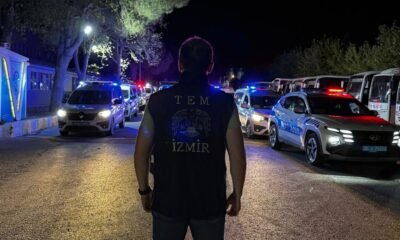
 Politics3 days ago
Politics3 days agoTürkiye clamps down on FETÖ on anniversary of coup attempt
-

 Sports1 day ago
Sports1 day agoTurkish giants dive deep into transfer waters with big, bold moves
-

 Daily Agenda19 hours ago
Daily Agenda19 hours agoNew Decision in Mattia Ahmet Minguzzi case: The case was postponed to October 2
-

 Economy2 days ago
Economy2 days agoUK inflation jumps in June to its highest in over year
-
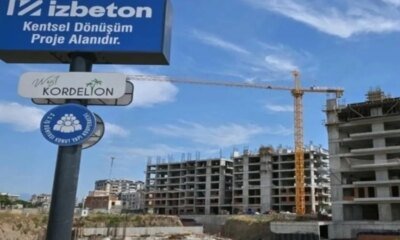
 Daily Agenda2 days ago
Daily Agenda2 days agoInternal audit reports emerged in İzbeton operation
-
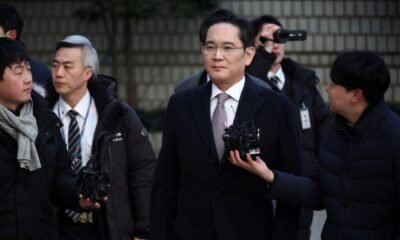
 Economy1 day ago
Economy1 day agoS. Korea’s top court clears Samsung’s boss of charges in fraud case
-
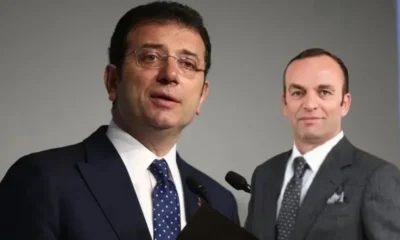
 Daily Agenda12 hours ago
Daily Agenda12 hours agoIstanbul’s money was connected to delegates and trolls! The ministry opened an investigation to the ATMs in IMM




